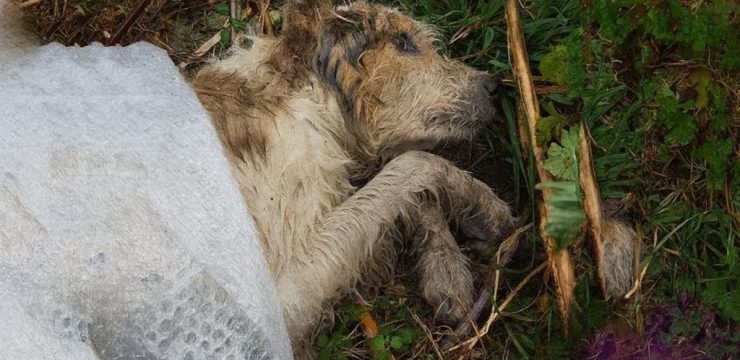Losing a loved one is one of the most profound and challenging experiences in life, leaving us emotionally raw, disoriented, and deeply affected. While much of the pain we feel during such times is rooted in emotional and psychological factors, recent scientific studies suggest that there is a biological dimension to our experience of grief. Fascinatingly, our sense of smell—a fundamental survival mechanism—plays a crucial role in shaping our response to mortality and loss.

The human sense of smell has been integral to survival throughout history. Much like animals use scent to detect danger, locate food, and identify one another, humans have developed similar sensitivities. Certain odors, particularly those linked to danger or decay, trigger instinctive reactions. One such chemical, putrescine, is released during the decomposition process and serves as a biological alarm system, alerting us to potential threats.
When humans detect the scent of putrescine, their bodies instinctively react, mimicking a fight-or-flight response. Even if we don’t consciously identify the smell or its connection to death, our brains process it as a warning signal, urging us to distance ourselves from possible danger. This automatic reaction underscores an ancient, deeply ingrained awareness of the risks associated with decay and mortality.
Evolutionary scientists suggest that these reactions have their roots in the survival strategies of early humans. For our ancestors, the ability to recognize the scent of death provided a significant advantage. It helped them steer clear of predators drawn to decaying remains, avoid areas with potential disease risks, and seek safer environments. This awareness was vital for survival and has been passed down through generations as a deeply embedded instinct.
Modern research has shown that exposure to putrescine can evoke feelings of fear, disgust, and even aggression. These emotional responses, inherited from our evolutionary past, heightened early humans’ alertness in dangerous situations. Today, while we may no longer face the same threats, these reactions remain a fundamental part of our biological defense system, quietly influencing how we perceive and respond to the world around us.
The survival instincts tied to death-related smells are still evident in the modern human experience. The scent of decay can evoke strong emotions like discomfort, fear, and a desire to retreat. These reactions occur on a subconscious level, activating ancient survival mechanisms that operate independently of our conscious thought. For early humans, these responses were life-saving, driving them to seek safer conditions and avoid unnecessary risks.
Beyond their practical survival value, our sensitivities to decay-related odors also serve a profound emotional purpose. These scents connect us to the reality of mortality, reminding us of life’s fragility. When we experience loss, our primal reactions intensify feelings of vulnerability, sadness, and fear. Even subtle hints of decay can stir discomfort or sorrow, weaving our biological instincts into the fabric of our emotional experiences.
This connection between smell and mortality sheds light on the universal nature of grief. It reveals how deeply intertwined our biological instincts are with the emotions we feel when confronted with loss. Our reactions to death-related smells highlight a shared vulnerability and resilience that unite humanity across cultures and generations.
Exploring grief through a scientific lens provides valuable insights into why we respond to loss the way we do. Understanding the role of smell, particularly the instinctive reactions triggered by putrescine, helps explain why certain emotions, such as sorrow and fear, are so overwhelming in the face of death. These reactions are not arbitrary; they are rooted in millions of years of evolutionary development, serving both survival and emotional functions.
While this knowledge doesn’t erase the emotional pain of losing someone, it offers a new perspective on grief. Recognizing that our responses are part of an ancient biological legacy can bring meaning to the shared human journey through life and death. It reminds us that grief is not only natural but also a testament to our deep connections with others and the enduring strength of our survival instincts.
At its core, grief reflects both our vulnerability and our profound capacity for connection. By understanding how biology influences our emotions, we gain a greater appreciation for the depth and universality of our experiences. This awareness can also provide comfort, knowing that our instincts are part of a long, shared history of survival, resilience, and humanity.
The biological underpinnings of grief reveal a duality in our responses to loss, blending instinct and emotion. This perspective reminds us that even in our darkest moments, we are part of a greater narrative of life shaped by millions of years of evolution. It enriches our understanding of grief and reaffirms the collective human journey in navigating life’s most profound challenges.





